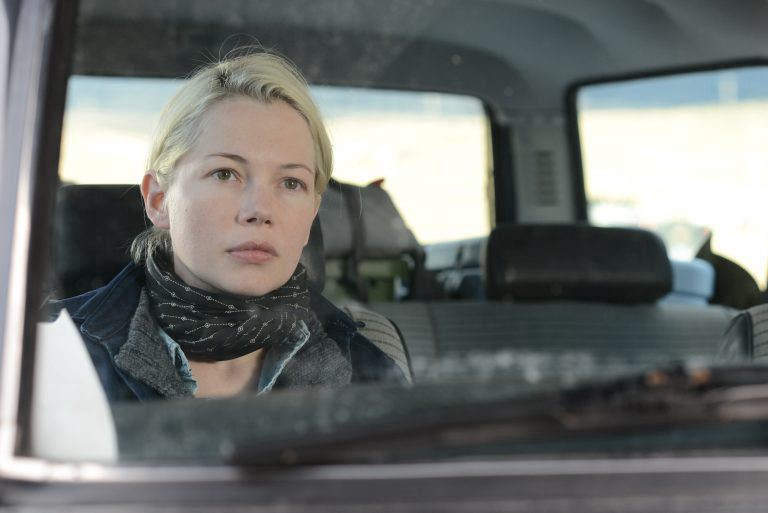Many film festivals talk the talk of gender equality, but when it comes to unveiling their programs, particularly the most high-profile sections, male-directed films continue to dominate. Michael Moore’s Traverse City Film Festival is actually taking action and putting female filmmakers at the forefront. In a bold move, the fest’s 2016 Official Selection, which includes 11 narrative features and 11 docs, is composed entirely of women-directed and co-directed films. How refreshing — and uncommon — for female filmmakers to headline rather than having their features relegated to a sidebar or spotlight section.
“They’re all incredible movies,” Moore told Indiewire. “As an expression of tokenism usually reserved for women, I am bringing five films by American men in a sidebar called, ‘Men Make Movies — The Struggle Continues.’” Let’s savor that for a moment: “Men Make Movies — The Struggle Continues.” Hilarious, genius, and painfully spot-on. (Note: The fest will feature other films directed by men in different sections, such as foreign and classic).
The line-up includes Heidi Ewing and Rachel Grady’s documentary “Norman Lear: Just Another Version of You,” Rebecca Miller’s comedy “Maggie’s Plan,” Kelly Reichardt’s drama “Certain Women,” and Maris Curran’s portrait of a grieving widower and his mother-in-law “Five Nights in Maine.”
The Traverse City Film Festival runs from July 26-31. You can find more info and buy tickets on the fest’s site. Check out Moore’s welcome letter below, courtesy of Indiewire. In it, he addresses white male privilege, Hollywood’s rigged system, and stats about women directors.
I belong to one of the most “liberal” industries in the US — the movie-making business — and we have managed for all of our 100+ years to virtually shut out and shut up the 51 percent of the population who are women. It is not lost on me that I work for a hierarchy that benignly sees to it that the majority gender does not get to tell their stories.
Let me state an uncomfortable truth. While I acknowledge that I’ve been blessed with certain talents for making the movies I’ve made, I am well aware that, as a white male, I’ve also been able to succeed on an obscenely uneven playing field that makes it much easier for me to walk through the studio gates and into the offices of bankers and funders because of my gender and my race. That’s just a simple fact.
And this rigged system continues uninterrupted when those of us who benefit from our “white male privilege” do not acknowledge it openly, do not rock the boat that has served us so well, do not rail against the obvious and thus remain complicit through our obedient silence. This tidy little arrangement keeps women — and people of color — in their place: on the outside looking in, with only a rare token seat for them at the table. (That seat, by the way, is occasionally there thanks to the indie and documentary worlds, where “only” 75 percent of the films are directed by men.)
It’s no surprise to me that attendance in theaters continues to drop. Most of you, I’m guessing, have little interest in seeing the same old tired batch of derivative, dumbed-down, sequel-saturated retreads that open each Friday at the local multiplex. If it’s the same group of filmmakers that keeps telling the same group of stories over and over again, it’s bound to get pretty boring. Don’t you wonder what the movies might look like if we got to watch stories from the majority of the population? Are we ever better off locking out any group of people from any activity? Have you ever seen what a basketball game looked like when a certain race was prohibited from playing it? Go online and watch a clip from any NBA game of the 1950s and try not to laugh. It’s weird and it’s wrong.
Hollywood’s refusal to pass the camera (and the funding) over to women and people of color so that they can tell their stories is the reason your choices this summer at the cine-mall are between “Fast and Furious Transformers: The Apocalypse” and “Buddy Comedy Road Trip to the Gods of Egypt 6.” Don’t you want to do something about that?
In our 12 years, the Traverse City Film Festival has remade and revolutionized the concept of what a film festival could be. We’ve also built two movie palaces in TC that are unlike any others in this country (and we’ve helped other Michigan theaters follow our lead). We’ve done this right smack in the middle of “nowhere.” And people elsewhere have taken notice. Who would have thought that a place called Traverse City could impact our beloved American populist art form, the cinema? You — we — did this.
Will you join me in making history with our film festival this year, right here in our 21st century experiment of what a Midwestern town could look like if the artists and the open-minded were allowed to create something new?







